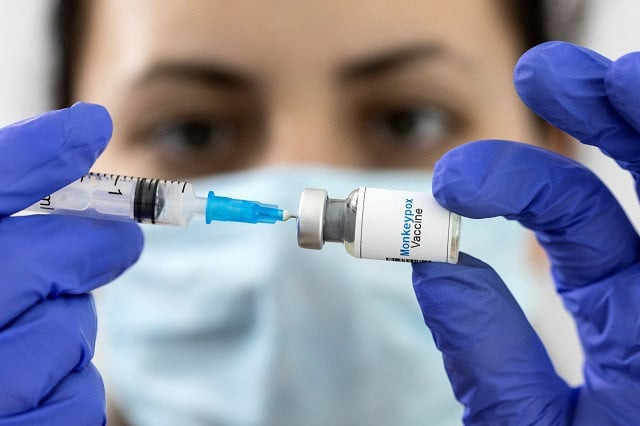Govt takes step to prevent monkeypox outbreak
Minister says strict monitoring of incoming passengers ordered

The health ministry has alerted all the provincial governments to keep an eye out for any suspected case of monkeypox in view of the World Health Organization’s (WHO) statement, declaring the outbreak “a global health emergency”.
Health Minister Qadir Patel said on Sunday that the government decided to increase surveillance in the country and had started taking effective measures to prevent any outbreak of the disease.
“All the national and provincial health authorities have been advised to remain on high alert for any suspected case of monkeypox,” Patel said in a statement. “Instructions have been issued to stakeholders, especially border health services for strict monitoring at all points of entry.”
According to the minister, the government would continue working as per the WHO guidelines. “The recommendations on the basis of international health regulations will be fully implemented in the country,” he added.
The minister said that screening of all incoming passengers would be ensured at border health services of the Central Health Establishment (CHE), particularly those passengers coming from African countries.
A National Health Services Ministry spokesperson said that no case of monkeypox had been diagnosed in Pakistan so far, but added that the situation was being closely monitored by the health authorities.
Monkeypox is a rare viral zoonotic disease that is caused by infection with the monkeypox virus. Although the natural reservoir of monkeypox remains unknown, African rodents and non-human primates like monkeys may harbour the virus and infect people.
The patient develops a rash within one to three days after the appearance of fever, often beginning on the face and then spreading to other parts of the body. Other symptoms include headache, muscle aches, exhaustion, and lymphadenopathy.
The incubation period is usually seven to 14 days but can range from five to 21 days. The illness typically lasts for two to four weeks. The transmission occurs via contact with an infected animal, human, or materials contaminated with the virus.



















COMMENTS
Comments are moderated and generally will be posted if they are on-topic and not abusive.
For more information, please see our Comments FAQ